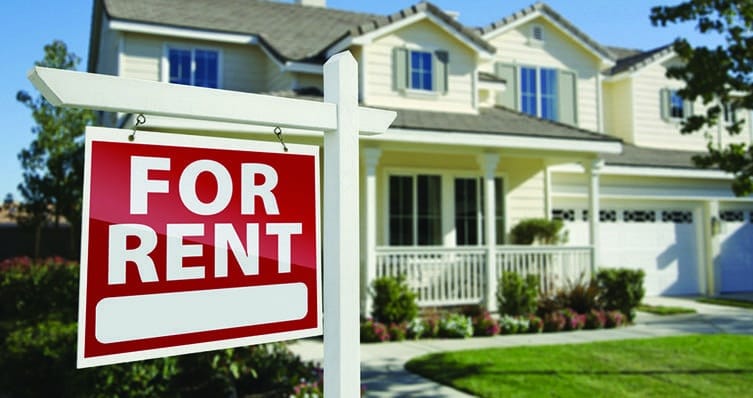Homes for rent with comfort and economy from US$ 500.
Anúncios
Relocating across the U.S. or moving within its borders can be an exciting transition, filled with new possibilities. Whether your move is career-driven, academic, or for a fresh start, understanding the rental market is key to making confident decisions. With the right guidance, you’ll be able to find a property that matches your lifestyle and budget.

Homes for Rent (Photo: Reproduction/Zillow)
With solid information and preparation, you can secure a rental that suits both your lifestyle and your financial plan.
Anúncios
Imagine walking into your new home, knowing you’ve taken all the right steps—researched your options, negotiated effectively, and protected your rights. That peace of mind is achievable. Let’s walk through the smart way to rent a home in the U.S. with expert-backed advice.
Getting Familiar with the U.S. Rental Scene
Before diving into apartment listings, it’s important to understand how rental markets function across the United States. Every region operates differently, influenced by economic activity, population trends, and housing supply and demand.
Anúncios
Regional Differences and Demand
Major metro areas like New York City, Los Angeles, and San Francisco are known for steep rents and intense competition. In contrast, smaller cities—particularly in states like Florida and Texas—tend to offer more affordable housing with greater inventory.
What Impacts Rent Prices?
- Neighborhood: Rental rates rise in areas close to jobs, transit, schools, or city centers.
- Property Features: Modern finishes or large floorplans typically command higher prices.
- Rental Season: Spring and summer see more activity and competition, affecting pricing.
- Economic Trends: Stronger job markets tend to drive up rental costs.
Why Monitoring the Market Pays Off
Tracking rental trends can help you plan your budget realistically and spot good deals in up-and-coming neighborhoods. Keeping an eye on price movements may also help you avoid overpaying during peak times.
Finding Your Ideal Rental Property
Once you’re familiar with the landscape, it’s time to search for actual listings. Fortunately, several digital and local methods can help you discover great rental opportunities.
Top Rental Websites
Leading rental search platforms include:
- Zillow
- Apartments.com
- Realtor.com
These sites allow you to filter listings by price, number of bedrooms, amenities, and location—making your search much more efficient.
Working with a Realtor
Local agents or property managers often have inside knowledge of rental listings not found online. They can help with lease terms, scheduling viewings, and understanding neighborhood dynamics.
Social Media and Community Boards
Facebook groups, community forums, and local bulletin boards are great for finding rentals that might not be advertised elsewhere. These channels are especially useful in fast-moving rental markets.
Tip: Use multiple platforms together to maximize your search reach.
The Rental Application Step
Once you’ve found a rental that fits your needs, it’s time to apply. This usually means submitting documentation and completing an application form.
Standard Documents You May Need
- Proof of Income: Such as pay stubs or a job letter.
- Past Rental History: References from previous landlords.
- Credit History: Landlords often request a credit report.
- ID Verification: Such as a driver’s license, visa, or passport.
Create a Strong Application
Include a short personal summary (a “rental resume”) with employment details, references, and your rental goals to stand out.
Quick Tips for Approval
- Be Transparent: Give truthful and complete information.
- Be Timely: Send in all required materials quickly.
- Clarify Credit Issues: Use references to explain any financial difficulties.
- Consider a Co-signer: If you lack credit history, a co-signer can help.
Understanding Lease Terms
Every lease contains specific terms that protect both the landlord and tenant. Knowing what to look for ensures you won’t run into surprises later on.
Important Lease Details
- Length of Lease: Start and end dates, and whether it’s month-to-month or fixed-term.
- Rent and Payment Due Dates: Be clear on how much and when it’s due.
- Security Deposit: Amount required and conditions for return.
- Maintenance Duties: Clarifies which repairs you’re responsible for.
- Pet Rules: States pet deposits or breed restrictions.
- Guests and Subleasing: Outlines rules about others staying on the property.
Always go over your lease thoroughly and clarify anything unclear before signing.
Tenant Rights in the U.S.
- Equal Housing Access: Laws prevent rental discrimination.
- Right to Privacy: Landlords must provide notice before entering.
- Eviction Rules: Evictions must follow legal procedures.
- Deposit Guidelines: States regulate max amounts and return timeframes.
Negotiating Your Lease
If market conditions allow, try to negotiate better terms—like a lower rent, included utilities, or repair commitments. Polite communication increases the chance of flexibility.
Best Practices for Renters
Your actions as a tenant can shape your overall experience. Here are some tips to help make renting stress-free and pleasant.
Maintain Clear Communication
Stay in touch with your landlord about any concerns, repairs, or financial issues. Being upfront fosters trust.
Pay on Time
Consistently paying rent by the due date strengthens your rental history and helps avoid issues.
Handle Repairs Quickly
Notify the landlord promptly when something needs fixing to avoid bigger problems later.
Follow Property Guidelines
Stick to community rules to maintain harmony and boost your chances of lease renewal.
Keep Records
Save payment receipts and written communication for reference if needed.
Cultivate Positive Relations
Being respectful with your landlord and neighbors creates a better living environment for everyone.
Conclusion
Renting a home in the United States becomes less intimidating with the right tools and understanding. By staying informed and organized, you’ll be well-positioned to secure a rental that supports your goals and lifestyle.
Preparation is key. With every step you take, you get closer to finding a home that feels right. Let these insights be your guide as you begin your next chapter in the U.S.
FAQs About Renting Homes in the U.S.
- What paperwork is required to rent? You’ll need income verification, rental references, a credit report, and valid ID.
- How can I boost my approval odds? Good credit, solid references, a complete application, and a co-signer if needed.
- Is short-term housing available? Yes, through short leases, furnished units, or platforms like Airbnb.
- What if I can’t pay rent? Contact your landlord early and propose a payment plan or delay arrangement.
- Are lease negotiations allowed? Yes. You may discuss terms such as rent, deposit, or lease flexibility depending on your situation.





